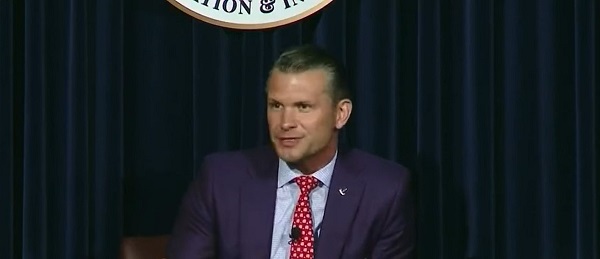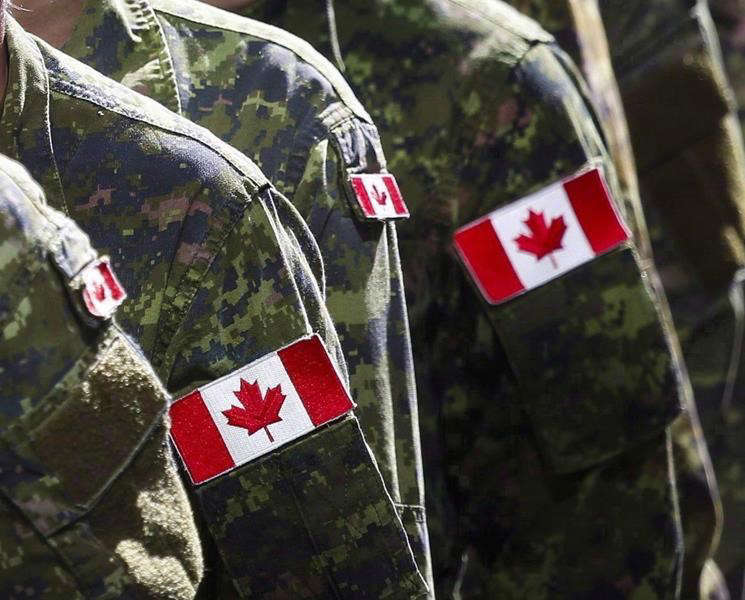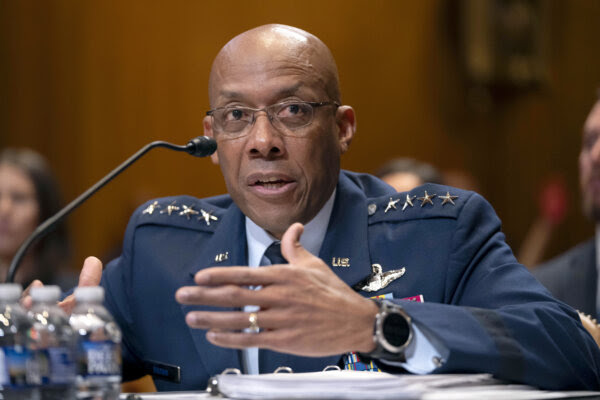armed forces
The Case for Peter Hegseth — Time To Try Something Different

By S.L. Nelson
Success in today’s world favors smart, creative leaders who can quickly adapt and make decisions that benefit their organizations. President-elect Donald Trump’s choice of Pete Hegseth to lead the Department of Defense marks a significant shift from his first administration.
Hegseth, with fewer ties to the traditional defense establishment, is expected to transform the department in two vital areas: First, he will expose generals and admirals who act out of self-interest; second, he will refocus the military on its core function of lethality — the use or threat of deadly force to win wars and deter enemies.
Hegseth’s appointment threatens senior military officers who are more concerned with their legacy than with mission accomplishment. These officers feel susceptible to changes that will threaten their carefully curated norms. Many current leaders have avidly promoted DEI (Diversity, Equity and Inclusion) and CRT (Critical Race Theory), and Hegseth’s threat to remove these programs stokes their fears. These leaders have promoted subordinates who share their views, creating a cycle of making leaders in their own image. To break this cycle, Hegseth will also need to ensure that general officers are held accountable for the officers they promote. These actions will ensure that his and President Trump’s ‘Warrior Boards’ achieve their desired effect and weed out the right leaders.
Civilian leaders and politicians should also scrutinize the retired officers who placed these generals in their positions in the first place. If multiple legacies are at risk, flag officers will develop and implement more objective metrics for recommending general officer positions.
Hegseth’s leadership will refocus the Department of Defense on its core purpose. By removing ineffective leaders who prioritize social theories over military effectiveness, he will eliminate a major obstacle. These changes will encourage accountability and forward-thinking approaches. A clear message will echo from the top down that adapting to change means manning, training, and equipping the military to win wars, rather than allowing military officers to succumb to the self-loathing which places individual egos above selfless service to the country.
Adapting to change is also the responsibility of military commanders. Officers command Army organizations. It is significant that in some branches of the United States Army, up to half the officers do not desire to compete for Battalion Command. Many reasons include burnout and the threat of investigations that are launched ad nauseam in a zero-defect environment. The Army cannot be effective if officers do not want to command. Commanders hesitate to enforce standards in this environment because an unhappy subordinate can ruin their career with a retaliatory allegation. If an investigation is launched, commanders worry that general officers will dispose of these allegations negatively rather than appear lenient. Secretary Hegseth will support his commanders because his commander in chief supports him.
Not supporting your subordinate commanders has vital consequences for national security. A glaring example of a lack of support for the Department of Defense is demonstrated by the contempt of the Chinese in answering Defense Secretary Lloyd Austin’s phone calls and his apparent indifference to it. “I think we’ll continue … to stress how important it is, and hopefully Minister Wei will schedule that call,” Austin told CNN.
One can hardly imagine Hegseth having the same attitude as Secretary Austin. Trump proved during his first term, with sanctions and recently renewed threats of another trade war with China, that his government will support its Defense Department by imposing harsh sanctions and other measures. This whole-of-government approach will allow Hegseth to focus on the military and make its interactions with foreign militaries more effective.
In fact, the Trump transition team is already laying the groundwork for forward-leaning tariff plans through legislation. Because legislation will make it harder to have subsequent administrations revoke these actions, the Defense Department will benefit from a more permanent government position when it comes to the exercise of economic power. Hegseth will, thus, occupy an even stronger position to engage with military threats to the United States with supporting economic policies that are not just unilateral executive actions by the Trump administration.
President-elect Trump’s selection of Pete Hegseth frees the Department of Defense from being anchored in the change dynamics of the past. Current and future change undercurrents cannot be managed with legacy processes. Leaders must adapt and be free to act outside of institutional norms, especially those tied to a selfish cycle of self-promotion and government social experiments rather than the effectiveness of the Department of Defense.
This article was originally published by RealClearDefense and made available via RealClearWire.
S.L. Nelson has served from the tactical to strategic level as a military officer. His views are his own and do not represent the position of the U.S. DoD.
armed forces
Canada’s Military is Collapsing. Without Urgent Action, We Won’t Be Able To Defend Ourselves

From the Frontier Centre for Public Policy
By David Leis
Decades of underfunding and political neglect have left our military weak and unprepared
What Lt.-Gen (retired) Michel Maisonneuve (ret.) told me about Canada’s military was nothing short of alarming. He didn’t mince words—our armed forces are in dire straits. If we don’t act now, Canada will not only be unable to defend itself, but it will cease to be taken seriously by our allies, many of whom are already losing patience with our military decline.
Maisonneuve has seen firsthand what a functioning military looks like. He has served at the highest levels, working alongside our allies in NATO, and he knows exactly what Canada is failing to do. “We are no longer at the table when major defence decisions are made,” he told me. “The Americans don’t ask us what we think anymore because they know we can’t contribute.” That is a stunning indictment of where we now stand—a country that was once respected for its ability to punch above its weight militarily has been reduced to an afterthought.
The problem, as Maisonneuve laid out, is both simple and staggering: Canada doesn’t take its defence seriously anymore. The government has allowed our forces to wither. The Air Force is still buying CF-18s from the 1980s because the long-delayed F-35 procurement is years behind schedule. The Navy, once a competent maritime force, is barely functional, with no operational submarines and a fleet that is nowhere near what is needed to patrol our vast coastlines.
Meanwhile, the Army is struggling to recruit and retain soldiers, leaving its numbers dangerously low. “We have an Army in name only,” Maisonneuve said. “If we were called upon tomorrow to deploy a fully operational combat force, we couldn’t do it.”
Even more shocking is the state of readiness of our troops. A recent report found that 75 per cent of Canadian military personnel are overweight. Maisonneuve didn’t sugarcoat it:
“It’s unacceptable. We are supposed to be training warriors, not watching fitness standards collapse.” When the people entrusted with defending our country are struggling with basic physical fitness, it speaks to something much deeper—an institutional rot that has infected the entire system. Our allies have noticed. Canada was locked out of AUKUS, the military alliance between the U.S., the U.K. and Australia. “It wasn’t an oversight,” Maisonneuve explained. “It was a deliberate snub. The Americans don’t see us as a serious defence partner anymore.” That snub should have been a wake-up call. Instead, our government shrugged it off.
Meanwhile, Washington is openly questioning Canada’s value in NATO. The Americans see the numbers—Canada refuses to meet even the minimum defence spending requirement of two per cent of GDP. Instead of fulfilling our obligations, we offer up empty promises and expect others to pick up the slack.
Maisonneuve is blunt about what needs to be done. “First, we need to fully fund the military—and that means not just hitting the NATO target but exceeding it. Our allies spend real money on their defence because they understand that security is not optional.” He suggests Canada should aim for at least 2.5 per cent of GDP, not just as a show of commitment but as a necessity to rebuild our capabilities. Beyond money, Maisonneuve argues that military culture must be restored.
“We’ve allowed ideology to creep into the ranks. The military’s primary function is to defend the nation, not to serve as a social experiment,” he said. “We need to get back to training warriors, not worrying about whether we’re ticking the right diversity boxes.” He believes a return to a warrior ethos is essential— without it, the military will remain directionless.
Procurement is another disaster that Maisonneuve insists must be fixed immediately. “We’ve spent years dithering on replacing equipment, and every delay puts us further behind,” he said. The F-35 deal should have been signed years ago, but political hesitation means we won’t see a full fleet for years. The Navy urgently needs new submarines and icebreakers, especially to secure the Arctic, where other global powers, particularly Russia, are ramping up their presence.
The biggest issue, though, is manpower. “We need to rebuild the forces, period,” Maisonneuve told me. “That means recruiting, training, and retaining soldiers, and we are failing at all three.” He even suggested that Canada should consider implementing a national service requirement, a move that would not only increase troop numbers but also instill a sense of duty and responsibility in younger generations. “We used to be a country that took security seriously,” he said. “What happened?”
That’s the question, isn’t it? What happened to Canada? How did we go from being a country that contributed meaningfully to global security to one that can’t even defend itself? The reality is that successive governments have let this happen—first by neglecting funding, then by letting bureaucracy suffocate procurement, and finally by allowing the core purpose of the military to be diluted.
Maisonneuve is clear: Canada must act now, or it will cease to be taken seriously.
David Leis is President and CEO of the Frontier Centre for Public Policy and host of the Leaders on the Frontier podcast
armed forces
Trump fires chairman of Joint Chiefs of Staff, appoints new military leader


From the Daily Caller News Foundation
By Mariane Angela
President Donald Trump announced Friday the dismissal of General Charles Brown, the current Chairman of the Joint Chiefs of Staff.
In a post on Truth Social, Trump expressed his gratitude toward Brown for his extensive contributions and leadership, wishing him and his family a prosperous future. Brown’s departure marks a pivotal moment in U.S. military leadership following over 40 years of service.
“I want to thank General Charles “CQ” Brown for his over 40 years of service to our country, including as our current Chairman of the Joint Chiefs of Staff. He is a fine gentleman and an outstanding leader, and I wish a great future for him and his family,” Trump wrote.
Simultaneously, Trump introduced his nominee for Brown’s successor.
“Today, I am honored to announce that I am nominating Air Force Lieutenant General Dan “Razin” Caine to be the next Chairman of the Joint Chiefs of Staff. General Caine is an accomplished pilot, national security expert, successful entrepreneur, and a “warfighter” with significant interagency and special operations experience,” Trump said.
Trump said Caine’s appointment comes after he was overlooked for advancement during former President Joe Biden’s presidency.
“General Caine was passed over for promotion by Sleepy Joe Biden. But not anymore! Alongside Secretary Pete Hegseth, General Caine and our military will restore peace through strength, put America First, and rebuild our military,” Trump said. President Trump also announced plans to appoint five additional senior military officials, tasks he has delegated to Secretary Hegseth.
It was reported Thursday that Hegseth plans to dismiss Brown as part of President Trump’s commitment to eliminate “wokeness” from the military. Brown reportedly appears on a list of proposed removals submitted to Congress.
Brown had previously expressed his wish to retain his position even after Trump took office, and according to sources speaking to NBC News in Dec. 2024, Trump seemingly moderated his views on the general. Biden nominated Brown as chairman in 2023, and despite a heated confirmation hearing where senators scrutinized his alleged implementation of racial quotas in Air Force hiring practices, he was confirmed.
Meanwhile, Brown’s replacement, Caine, took office as the associate director for Military Affairs at the CIA on Nov. 3, 2021, after serving as the director of Special Programs at the Pentagon. Lt. Gen. Dan Caine, an F-16 pilot with extensive experience including over 150 combat hours, was commissioned in 1990 and has held numerous key roles, from the White House staff to special operations, and balances his military career with entrepreneurial ventures.
-

 2025 Federal Election2 days ago
2025 Federal Election2 days agoLiberals Replace Candidate Embroiled in Election Interference Scandal with Board Member of School Flagged in Canada’s Election Interference Inquiry
-

 Business19 hours ago
Business19 hours agoTrump threatens additional 50% tariffs on China, urges ‘patience’
-

 Alberta18 hours ago
Alberta18 hours agoProvince introducing “Patient-Focused Funding Model” to fund acute care in Alberta
-

 Business1 day ago
Business1 day agoJury verdict against oil industry worries critics, could drive up energy costs
-

 MacDonald Laurier Institute16 hours ago
MacDonald Laurier Institute16 hours agoRushing to death in Canada’s MAiD regime
-

 Alberta2 days ago
Alberta2 days agoIs Canada’s Federation Fair?
-

 2025 Federal Election20 hours ago
2025 Federal Election20 hours agoMark Carney Comes to B.C. and Delivers a Masterclass in Liberal Arrogance
-

 International17 hours ago
International17 hours agoUN committee urges Canada to repeal euthanasia for non-terminally ill patients





